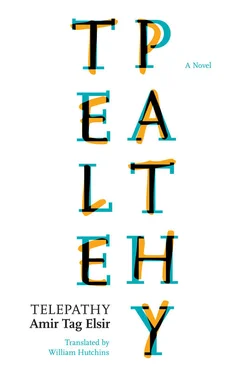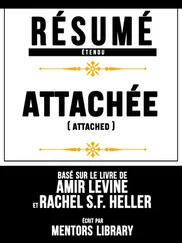The first thing I did when I returned from my splendid Malaysian trip was to seek out Umm Salama. She is a middle-aged widow whose military husband died in the Southern War while it was raging a number of years ago. She has two adolescent children bursting with curiosity, but her limited means curb their enthusiasm. She lives in a district far from my own and comes two or three times a week to clean my house and prepare my food.
I live in an excellent district in the center of the capital, in a house I purchased long ago. I am not married and have absolutely no intention of marrying again after my divorce — from a woman who loved me and whom I loved — seven years earlier. My ex-wife simply could not bear to live with the lunacy of my writing and perpetual travel, my bouts of pessimism and frustration, and the troupes of women who are always twittering at cultural events.
My house actually has been very well fortified against surprise visits of any type, and just a few people know where it is. By and large, no one visits me except my only brother, Muzaffar, who works as an aid coordinator for an NGO and who lives in a city in a distant region in the west of the country. He only comes twice a year, not to spend time with me but to hang out with his friends in the capital, which we residents normally find less thrilling than do people who live in the provinces. On a few occasions, Malikat al-Dar visits me. She is an elderly, retired midwife and my spiritual mother, as I call her. She was a friend of my mother’s and helped me a lot when I was starting out. I normally meet my friends and readers, however, in numerous coffeehouses. This strict domestic isolation has permitted me to organize my library the way I want. I have put most of my books in the living room and created two smaller libraries in the two adjoining rooms. Meanwhile, the master bedroom has remained free of everything related to reading and writing. When I enter it, I bring along only my drowsiness or my insomnia — nothing more.
Although I resigned from my post as a middle school math teacher a long time ago and haven’t practiced any other occupation since, I have managed to eke out a living, one way or another. It’s true that the furnishings of my house are very modest, but I respect that and love their modesty. I do not possess the latest car like those that brokers and social parasites drive, but my cranky old car, a Toyota Corolla, performs its duties on most days admirably and satisfies my limited transportation needs.
The next morning, entranced by the Eastern writing spices I had brought back, I was busily attempting to drag them onto paper when my cell phone rang. The call was from Najma — a presumptuous girl whom I had known for two years and whose arrogance still made me grumble occasionally. She felt so superior to the world that she seemed even to breathe sparingly. She felt superior to the nation and its inhabitants and was fully convinced that the distant stars in the sky had been named for her — not the other way round.
Najma dressed traditionally and didn’t follow modern styles, because she didn’t care to be swayed by the fashions of this age or any other. Her perfumes were a mix of local and foreign scents so she wouldn’t feel confined to one fragrance, as she explained. Her opinion of men could be summarized in just one sentence, and it wasn’t favorable.
I met her one day at an out-of-the-way coffeehouse where she read me her story “The Neighbor’s Goat”. The idea was imaginative and remarkable. One of the writer’s neighbors owned a kid that could forecast the weather, volatility in prices, illness, and death. When the goat raged violently through the house, its owner knew that a military coup, a destructive earthquake, or some similar catastrophe would occur that day. Although the story showed a fertile imagination, it was poorly written.
I told the girl frankly what I thought and that she should rewrite it after she read more authors and acquired more literary skill. She did not like that at all. She quarreled with me and broke off contact with me for a number of months. She returned again, however, when she found herself in a quandary that she wanted to implicate me in — not to resolve it, because she would be able to resolve it on her own, at the appropriate time, as she put it — but for me to transform it into a novel.
During that period, she had moved with her family to an old district that was inhabited in the main by people with limited incomes, because her father had retired from a government post in the tax bureau and his resources had shrunk considerably. There, a young man who drafted legal documents in front of the Shari’a Court and who lived in that district, saw her and fell madly in love with her.
At first the young petition writer, named Hamid Abbas but known in the neighborhood as Hamid Tulumba (or “the Pump”), displayed his affection merely in swift, breathless looks at her face and trim body whenever he chanced upon her in the street. This display of affection evolved into the release of ill-phrased exclamations, when he found her waiting for a bus or taxi at the district’s public transport station, and finally became thick letters with long, convoluted sentences. She would find these along the district’s dusty roads, at the publicity and advertising agency where she worked, or tossed over the garden wall of her house. Sometimes one of her little brothers would bring a letter to her when he returned from playing in the street.
Laughing, Najma informed me with her extraordinary arrogance that she loved this situation immensely and wanted it to simmer for as long as possible so that it could serve as a splendid literary plot in the future. She had devised for the poor petition drafter all types of mud for him to sink in up to his hair. She had plied him with colorful smiles, carefully traced on her lips. She had provided him with glimpses of facial features that could easily be described as those of a dazzling, agreeable girl. Once, she dropped a white piece of paper in front of him with only a question mark on it. One day she wore a screaming red dress and misted her body with a powerful jasmine perfume, because Tulumba had once written she was a red rose that emitted its scent incessantly.
Her dilemma, when I encountered her that day, had apparently reached a climax, and her lover, Tulumba, had informed her in the last of twenty letters that had reached her by various means, that he was preparing a house of love to embrace both of them, building a ceiling over it with a trellis of affection, and furnishing it with soft pillows of love that would never fray.
“Ah! Isn’t this a splendid novel, Master? Isn’t it a plot concept worth putting into words?”
In fact, it was by no means a splendid plot idea for a novel that contemporary writing would embrace. Stories of unrequited love, of requited love, or even of love between one hundred different partners have become so shopworn in all the literatures of the world that I believe they no longer attract mature readers. Moreover, even though I didn’t know that unfortunate petition writer and never expected to meet him, I sympathized intensely with him and hoped that he really wouldn’t need to pull his heart out of the muck and that his true-life ordeal would end. Besides, even if I had found the story concept convincing, I wouldn’t write it, quite simply because I don’t write from experiences that don’t involve me at all. I have never written a novel based on an experience that some random person had and that I happened to hear about. I have my own loose-fitting storytelling shirt that never feels too tight on the body of my writing. I have my imagination, my taste, my perfumes, my spices, and my paved and rocky roads that I traverse when I ride forth on writing’s back.
Читать дальше












